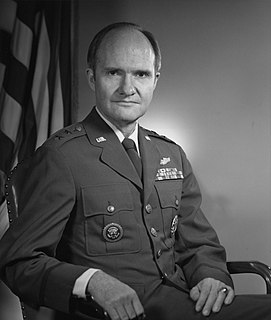A Quote by Peter Maurer
Although the ICRC and the World Economic Forum have separate missions, they both are centred on collaboration across sectors and between various actors in order to improve the state of the world.
Related Quotes
We live in a world of absolute immediacy. It is an interconnected, combustible world, where technology and many other actions have given nonstate actors a reach, into countries and societies, for both good and evil, that we have never seen before. So it isn't a matter of just state versus state challenges or conflict. The bigger problem is nonstate actors.
The world is not something separate from you and me; the world, society, is the relationship that we establish or seek to establish between each other. So you and I are the problem, and not the world, because the world is the projection of ourselves, and to understand the world we must understand ourselves. That world is not separate from us; we are the world, and our problems are the world's problems.
A masterly analysis of how political interests, economic circumstances, development strategies, and local history have shaped what are surprisingly different versions of the welfare state across the developing world. The authors combine fine-grained country analyses with intelligent use of data, and explain and extend the theory and literature on the modern welfare state. The book is both scholarly and readable.
Because national borders are eroding, because of the growth of non-state actors. It's a different kind of a world. We are tied down by a tiny little country - Iraq. It's amazing, given the disparity in military economic strength. It's a world where most of the big problems spill over national boundaries, and there are new kinds of actors and we're feeling our way as to how to deal with them.






































